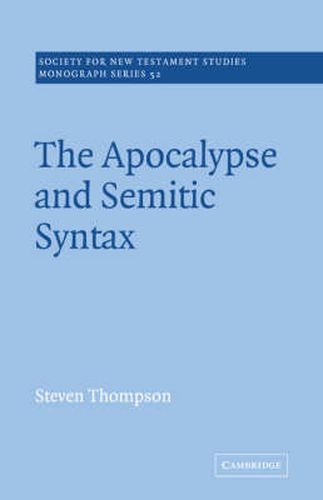Readings Newsletter
Become a Readings Member to make your shopping experience even easier.
Sign in or sign up for free!
You’re not far away from qualifying for FREE standard shipping within Australia
You’ve qualified for FREE standard shipping within Australia
The cart is loading…






This book offers a consistent explanation of the peculiarity of the language of the Apocalypse (or Book of Revelation), namely that the rules of Greek grammar are broken because of the influence of Hebrew and Aramaic. It advances previous simila hypotheses in three ways. First, it focuses chiefly on the verbal system. Secondly, by methodically citing the ancient Greek translations of the Old Testament to demonstrate Hebrew/Aramaic influence, it serves as a limited survey of the syntax of the Septuagint. Thirdly, it argues that the Apocalypse’s grammar was influenced not by later Hebrew/Aramaic dialects in use during the first century AD but by Old Testament Hebrew/Aramaic. This thesis suggests a new approach to the Apocalypse that gives greater attention to the influence of Old Testament Hebrew/Aramaic grammar and a fuller awareness of the writer’s indebtedness to the Old Testament.
$9.00 standard shipping within Australia
FREE standard shipping within Australia for orders over $100.00
Express & International shipping calculated at checkout
This book offers a consistent explanation of the peculiarity of the language of the Apocalypse (or Book of Revelation), namely that the rules of Greek grammar are broken because of the influence of Hebrew and Aramaic. It advances previous simila hypotheses in three ways. First, it focuses chiefly on the verbal system. Secondly, by methodically citing the ancient Greek translations of the Old Testament to demonstrate Hebrew/Aramaic influence, it serves as a limited survey of the syntax of the Septuagint. Thirdly, it argues that the Apocalypse’s grammar was influenced not by later Hebrew/Aramaic dialects in use during the first century AD but by Old Testament Hebrew/Aramaic. This thesis suggests a new approach to the Apocalypse that gives greater attention to the influence of Old Testament Hebrew/Aramaic grammar and a fuller awareness of the writer’s indebtedness to the Old Testament.